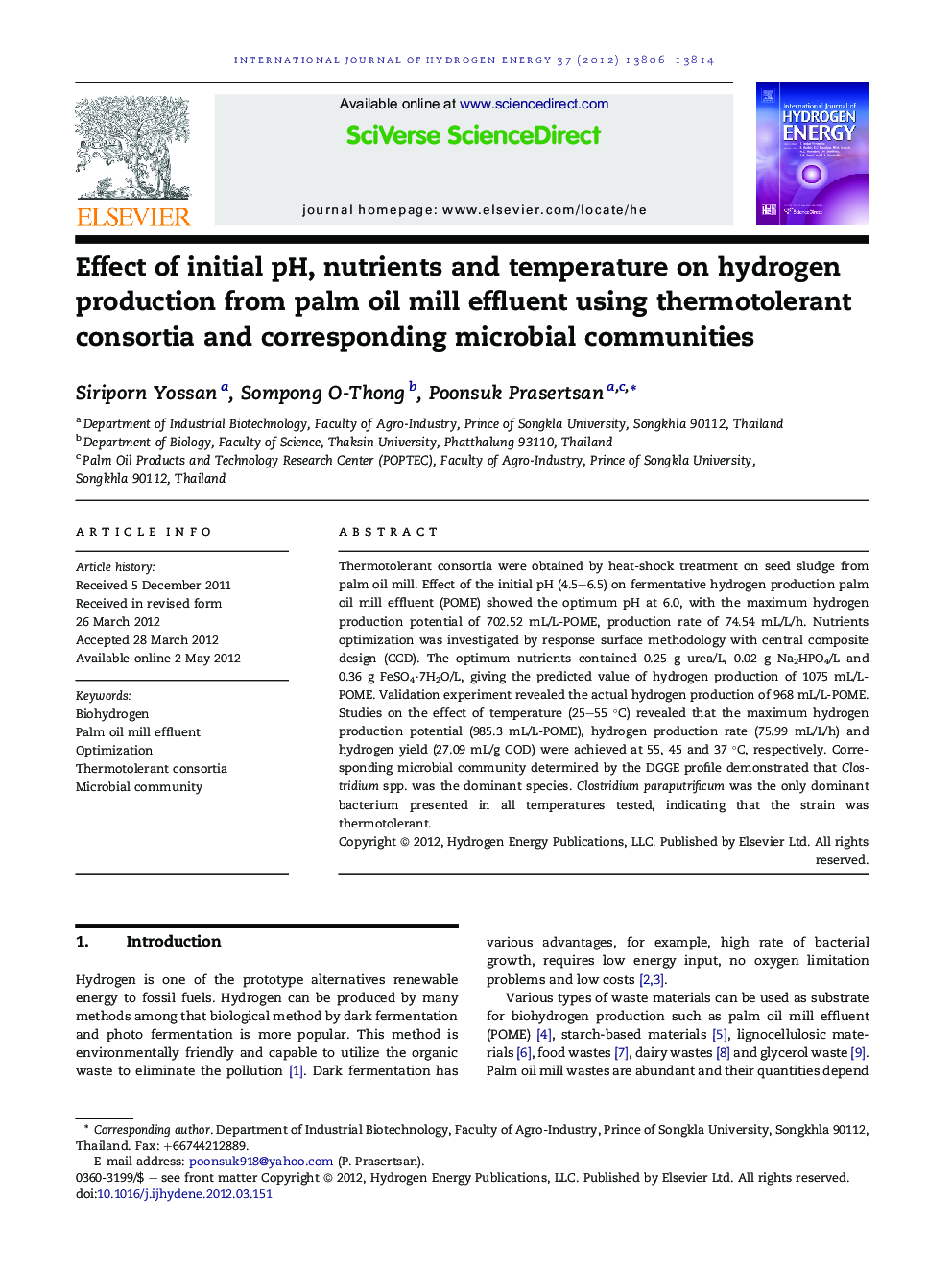| کد مقاله | کد نشریه | سال انتشار | مقاله انگلیسی | نسخه تمام متن |
|---|---|---|---|---|
| 1282287 | 1497551 | 2012 | 9 صفحه PDF | دانلود رایگان |

Thermotolerant consortia were obtained by heat-shock treatment on seed sludge from palm oil mill. Effect of the initial pH (4.5–6.5) on fermentative hydrogen production palm oil mill effluent (POME) showed the optimum pH at 6.0, with the maximum hydrogen production potential of 702.52 mL/L-POME, production rate of 74.54 mL/L/h. Nutrients optimization was investigated by response surface methodology with central composite design (CCD). The optimum nutrients contained 0.25 g urea/L, 0.02 g Na2HPO4/L and 0.36 g FeSO4·7H2O/L, giving the predicted value of hydrogen production of 1075 mL/L-POME. Validation experiment revealed the actual hydrogen production of 968 mL/L-POME. Studies on the effect of temperature (25–55 °C) revealed that the maximum hydrogen production potential (985.3 mL/L-POME), hydrogen production rate (75.99 mL/L/h) and hydrogen yield (27.09 mL/g COD) were achieved at 55, 45 and 37 °C, respectively. Corresponding microbial community determined by the DGGE profile demonstrated that Clostridium spp. was the dominant species. Clostridium paraputrificum was the only dominant bacterium presented in all temperatures tested, indicating that the strain was thermotolerant.
► Initial pH, nutrients and temperature affected on H2 production from POME.
► The optimum initial pH was 6.0.
► Optimum nutrients were 0.25 g urea/L, 0.02 g Na2HPO4/L and 0.36 g FeSO4·7H2O/L.
► Maximum H2 production, rate and yield were at 55, 45 and 37 °C, respectively.
► Clostridium paraputrificum were thermotolerant strain with growth temperature of 25–55 °C.
Journal: International Journal of Hydrogen Energy - Volume 37, Issue 18, September 2012, Pages 13806–13814